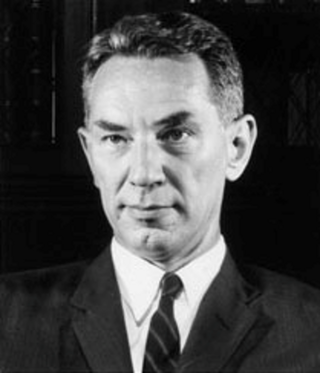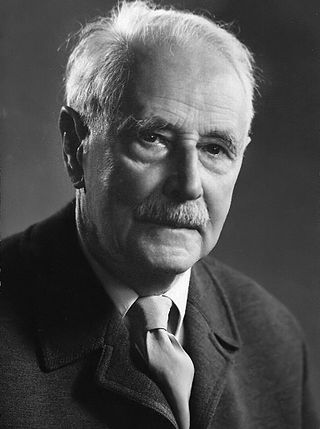
Edwin Oldfather Reischauer was an American diplomat, educator, and professor at Harvard University. Born in Tokyo to American educational missionaries, he became a leading scholar of the history and culture of Japan and East Asia. Together with George M. McCune, a scholar of Korea, in 1939 he developed the McCune–Reischauer romanization of the Korean language.
Sinology, otherwise referred to as Chinese studies, is a sub-field of area studies or East Asian studies involved in social sciences and humanities research on China. It is an academic discipline that focuses on the study of the Chinese civilization primarily through Chinese language, history, culture, literature, philosophy, art, music, cinema, and science. Its origin "may be traced to the examination which Chinese scholars made of their own civilization."
Japanese studies or Japan studies, sometimes known as Japanology in Europe, is a sub-field of area studies or East Asian studies involved in social sciences and humanities research on Japan. It incorporates fields such as the study of Japanese language, history, culture, literature, philosophy, art, music, cinema, and science.

John King Fairbank was an American historian of China and United States–China relations. He taught at Harvard University from 1936 until his retirement in 1977. He is credited with building the field of China studies in the United States after World War II with his organizational ability, his mentorship of students, support of fellow scholars, and formulation of basic concepts to be tested.
Monumenta Nipponica is a semi-annual academic journal of Japanese studies. Published by Sophia University (Tokyo), it is one of the oldest English-language academic journals in the field of Asian studies, being founded in 1938. Although the journal originally published articles in several languages, such as French, German, Spanish, and Italian, the journal has been published solely in English since early 1963. A series of 75 monographs were also published until 1986 under the Monumenta Nipponica name.
Yomihon is a type of Japanese book from the Edo period (1603–1867). Unlike other Japanese books of the periods, such as kusazōshi, they had few illustrations, and the emphasis was on the text. In storylines, Buddhist ethics such as karma are often preached, and characters with supernatural powers and imaginary creatures are often depicted.
The Harvard–Yenching Classification System is a library classification system for Chinese language materials in the United States of America. It was devised by Alfred Kaiming Chiu (1898–1977). The system was primarily created for the classification of Chinese language materials in the Harvard–Yenching Library which was founded in 1927 at the Harvard–Yenching Institute.

Serge Elisséeff was a Russian-French scholar, Japanologist, and professor at Harvard University. He was one of the first Westerners to study Japanese at a university in Japan. He began studying Japanese at the University of Berlin, then transferred to Tokyo Imperial University in 1912, becoming the first Westerner to graduate from Tokyo Imperial University in Japanese as well as its first Western graduate student.

Walter Liebenthal (12 June 1886 – 15 November 1982), was a German philosopher and sinologist who specialized in Chinese Buddhism. He translated many philosophical works from Pali, Sanskrit and specially from Chinese into German. Based upon his extensive research in Indian Buddhism and Chinese religion, one of his main conclusions was that early Chinese Buddhism through Ch'an (Zen-) was not a Chinese version of Indian Buddhism, but rather, that it developed from Taoism, a Chinese religion. Indian concepts are present, but at the core it represents a Chinese perspective.

The Harvard–Yenching Library is the primary location for East Asia-related collections at Harvard Library. In addition to East Asian languages, it houses collections in European languages and Southeast Asian language (Vietnamese). Totaling more than 1.5 million volumes, the Harvard-Yenching Library has one of the largest collections in East Asian studies outside of Asia. The library has been located at 2 Divinity Avenue on the Cambridge campus of Harvard University since around 1957. The building was originally built in 1929 for Harvard's Institute of Geographical Exploration and currently houses part of the Harvard-Yenching Institute and the Department of East Asian Languages and Civilizations, in addition to the Harvard-Yenching Library.
Achilles Chih-t'ung Fang was a Chinese scholar, translator, and educator, best known for his contributions to Chinese literature and comparative literature. Fang was born in Japanese-occupied Korea, but attended university in mainland China. After completing his undergraduate degree, Fang worked for Monumenta Serica, a prominent scholarly journal of Chinese topics. He then moved to the United States, where he took up residency in Cambridge, Massachusetts, studying and teaching courses at Harvard University.
Francis Woodman Cleaves was a sinologist, linguist, and historian who taught at Harvard University, and was the founder of Sino-Mongolian studies in America. He is well known for his translation of The Secret History of the Mongols.
Inu makura or The Dog Pillow (犬枕) is an early-Edo period Japanese literary parody of The Pillow Book of Sei Shōnagon. The title has also been translated as The Mongrel Pillow.
Teng Ssu-yü was a Sinologist, bibliographer, and professor of history at Indiana University. Born in Hunan Province, China, he died in Bloomington, Indiana, after being struck by a car. Teng was trained in China in both the traditional skills of the Confucian scholar and contemporary historical attitudes and techniques. When he came to the United States in 1937, he became a member of the founding generation of American China studies. He wrote not only specialized monographs and bibliographical tools for academics but also such broad studies for introductory students as China's Response to the West.
James Robert Hightower was an American sinologist. He was a professor of Chinese at Harvard University who specialized in the translation of Chinese literature. Although he spent his youth in Colorado, Hightower lived most of his life in Cambridge, Massachusetts studying and teaching at Harvard.

William Hung, was a Chinese historian and sinologist who taught for many years at Yenching University, Peking, which was China's leading Christian university, and at Harvard University. He is known for bringing modern standards of scholarship to the study of Chinese classical writings, for editing the Harvard-Yenching Index Series, and for his biography of Du Fu, Tu Fu: China's Greatest Poet, which is considered a classic in the English world on the studies of Du Fu. He became a Christian while a student at the Anglo-Chinese College in Fuzhou, then went to Ohio Wesleyan University, Delaware, Ohio, Columbia University, and Union Theological Seminary. On his return to China, he became Professor and Dean of Yenching University, where he was instrumental in establishing the Harvard-Yenching Institute. He came to Harvard in 1946 and spent the rest of his life in Cambridge, Massachusetts, teaching and mentoring students.
Ronald Suleski is a historian, anthropologist and author specializing in East Asia. He has been the longest serving president of the Asiatic Society of Japan, served on the National Committee on US-China Relations and associated with the Harvard University's East Asian research center. He is currently serving as the Director of the Rosenberg Institute at Suffolk University in Boston, Massachusetts, United States.
Edward A. Kracke Jr. was an American historian of China at the University of Chicago, specializing in Song dynasty history. He was president of the American Oriental Society in 1972–73.
Liu Kwang-ching, who sometimes published under the name K.C. Liu, was a China-born American historian of China. He taught at University of California-Davis from 1963 until his retirement in 1993. He is best known for his scholarship in late-Qing history, astute bibliographical work, and edited volumes, including co-editing Cambridge History of China volumes.






